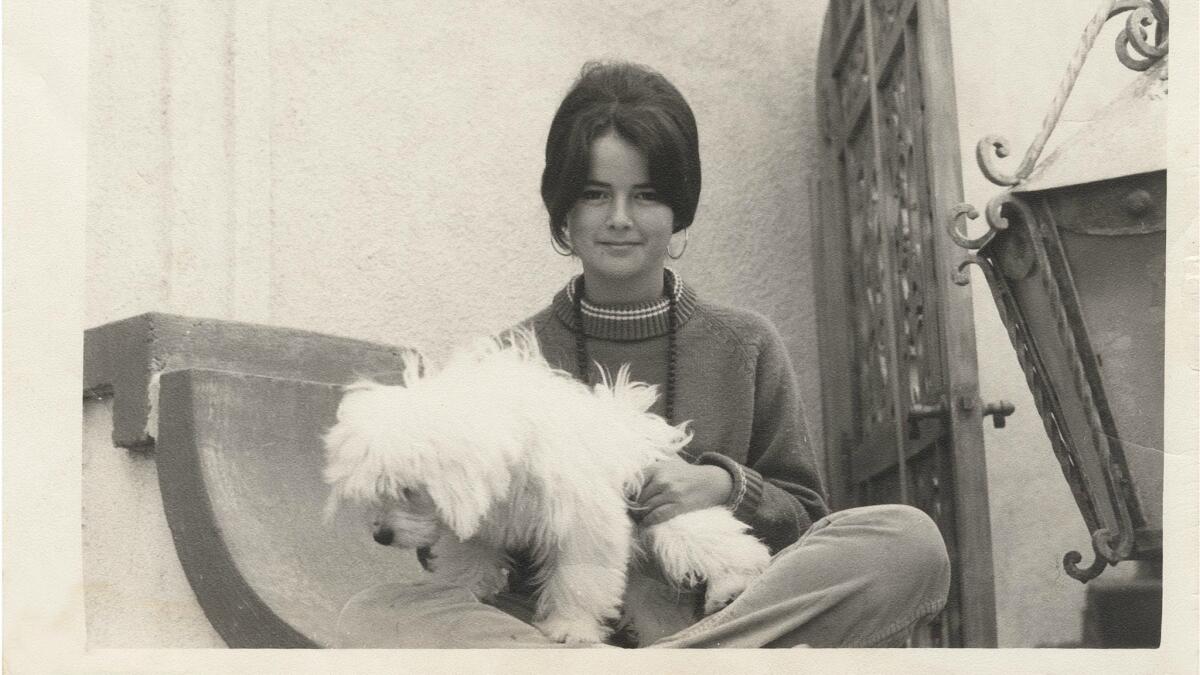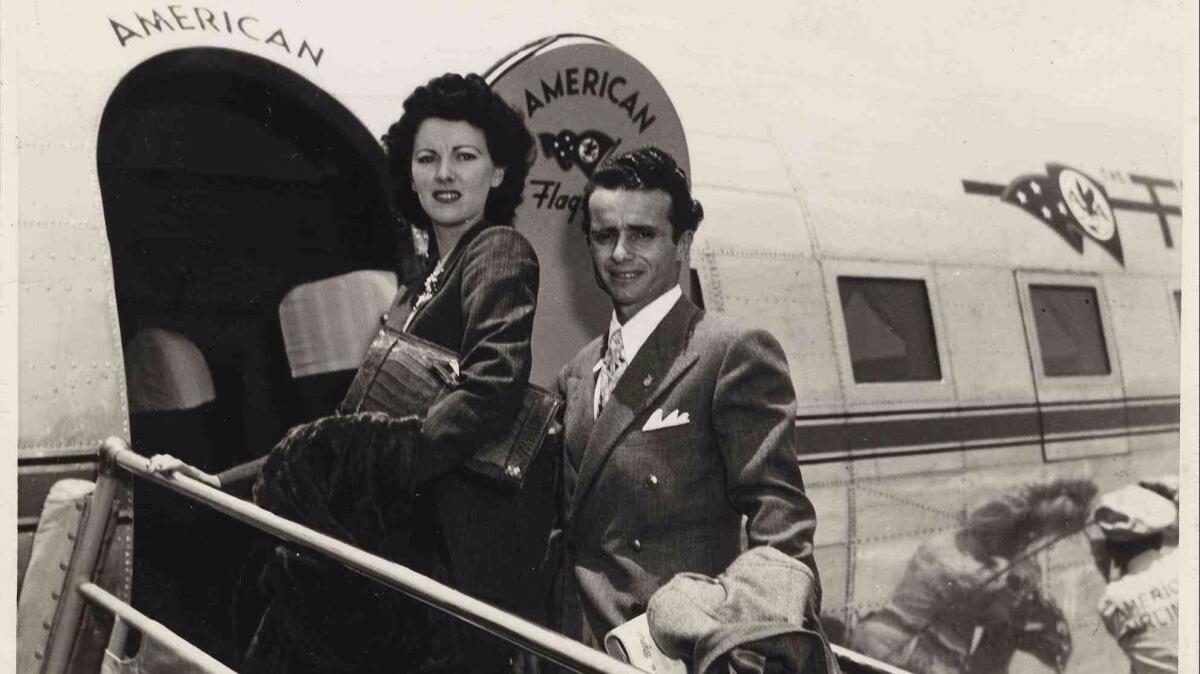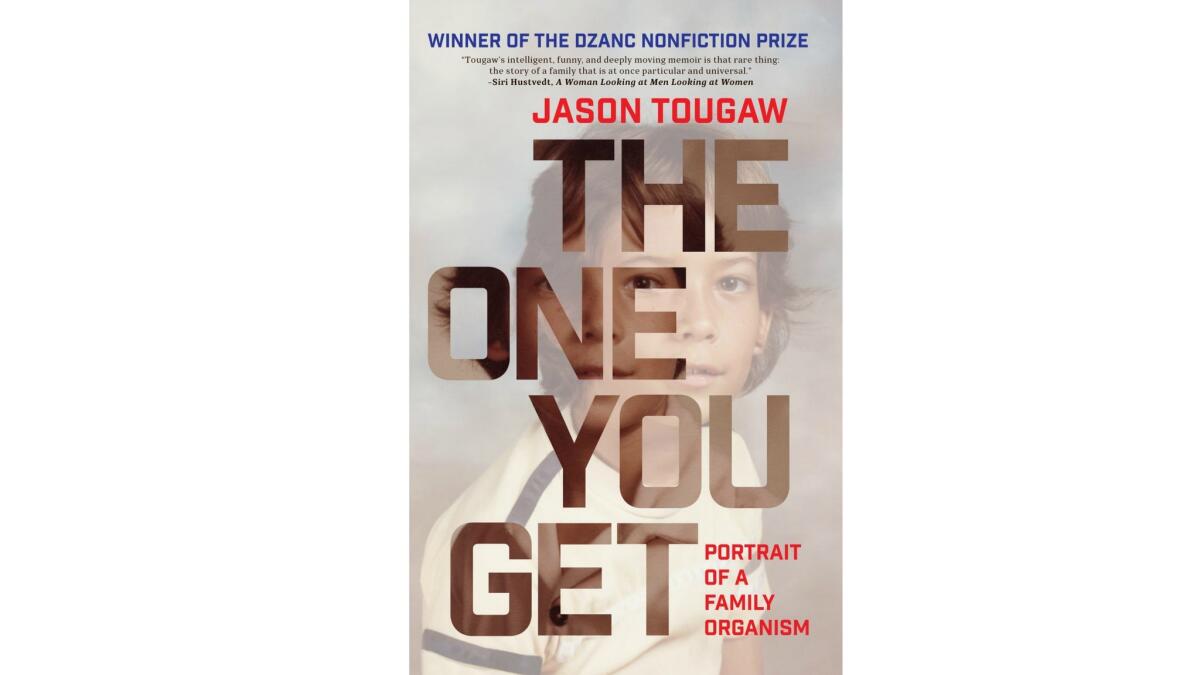Q&A: Writing family stories: Jason Tougaw on his memoir āThe One You Getā
Jason Tougaw is my favorite polymath. Aside from being a writer, heās a literature professor at Queens College and the CUNY Graduate Center, where he teaches courses on literature and: dreams, neurodiversity, the mind, the brain and consciousness. But donāt be fooled. He is not stuffy. Heās also a DJ and a walking new wave encyclopedia.
I can attest to this, as we have fervently compared, over bourbon, the merits of Depeche Mode versus New Order. This is not a digression. āThe One You Get: Portrait of a Family Organism,ā (Dzanc, $16.95 paper) Tougawās brilliant and beautiful memoir, and winner of the Dzanc 2017 Nonfiction Prize, takes two convergent paths: the first is that of his own personal story growing up in the sun-soaked Seventies and new wave Eighties of Southern California in a family of outsiders; the second is one of scientific interpolation. Tougaw guides us into realms of fascinating scientific inquiry, places like dream theory, neuroscience, and cutting-edge theories of consciousness, places that ultimately illuminate what it was to be him, but more, what it is to be human. The book is alive. Tougaw and I met at a dark bar in New York Cityās Chinatown, where we talked about memory, Christopher Isherwood, growing up gay, and yes, new wave. This conversation has been edited.
First I must say reading the memoir was illuminating. I thought I knew you!
One of the peculiar things about writing a memoir is the fact that people who know you will read it. You know me, but what do you know. There are the facts. Maybe Iāve told you some. But thereās also the feeling of knowing somebody. I donāt know what it feels like for you, or anybody else, to know me. And vice versa.

Expectedly, itās a joyous book, but it can also be brutal.
So many people experience brutality. If you can, I think itās an ethical thing to be forthright and public about that. What I really didnāt want to do was sensationalize the brutality, or be precious about it. I didnāt want a memoir that made the brutality I experienced seem extraordinary. The memoir form, particularly as itās evolved in the last couple of decades, can tend toward that kind of thing: Can you believe what happened to him? But Iām also a person who experienced a lot of freedom to roam without a lot of limiting preconceptions about how the world should be. I also experienced plenty of joy and laughter.
The scientific interpolation is rich and beautiful and, unexpectedly, quite personal. What books did you use as models?
I didnāt really use any particular books as models. Iām sure I was influenced by Oliver Sacks, his way of thinking about peopleās biology as a significant part of their sense of who they are. When I was a teenager, I got obsessed with Jean Cocteau (by way of a David Sylvian song). His films and books influenced me in the sense that he mixes reality and fantasy without marking a clear dividing line between the two. It strikes me that both memory and imagination work across that line. And that a sense of self is in no small part fantasy.
In the book you write that you āuse neuroscience to get back at Stanley,ā your abusive stepfather ā
The idea of using neuroscience as revenge is sort of ridiculous. Isnāt it?
I made you laugh...
I think I laughed when I wrote that line. Iāll admit that revenge probably did motivate me in some ways to write the book, but I didnāt think about the neuroscience that way, until I wrote that line about Stanley, which was sort of a joke to myself. Throughout childhood, I did fantasize about a kind of vengeance, about growing up and having more control over my life and basically saying to guys like Stanley, āYeah, I was a sissy. I couldnāt surf. I was dreamy and intellectual. And those are viable ways to be in the world.ā I did want the neuroscience to feel personal, because it is personal. Weāve all got these brains in our skulls. Our nervous systems run through our bodies ā all these neural systems trading chemicals and electricity. We have a sense that it drives us and plays a big part in making us who we are. But how? We donāt know. So I decided to fantasize about it, in writing, but I also wanted to learn enough to fantasize with some authority and insight.

You and I share a love for new wave, punk, and post-punk music, and that love permeates this book. In fact, I would say itās an essential part of its aesthetic and personality. You say that new wave songs were ācogs in the factory of [your] alteration.ā
New wave made it seem amazing to be a sissy and an intellectual. All these bands referenced literature, film and history. Duran Duran got their name from āBarbarella.ā David Sylvian wrote songs inspired by Jean Cocteau. I was raised by hippies who loved rock, artists like Jimi Hendrix and Janis Joplin. I learned only recently that my father loved Taj Mahal, which seems pretty cool of him. My mom had a really bad boyfriend obsessed with the Rolling Stones. Punk rejected a certain part of rockābasically, the showmanship and the aura of the rock star. But then post-punk, new wave, and my beloved new romantics rejected other stuff: the guitar riffs, the put-on sincerities, the anti-intellectual. What it came down to for me was a rejection of music that propped up the kind of masculinity I was afraid of as a kid. I was afraid of it, but I also just wanted to be something else. I wanted to be cool, but I needed ways of being cool that werenāt about that. Guys in makeup playing synthesizers and singing about sex and philosophy, thatās what I needed.
Does music continue to alter you? As a radio DJ are you aware of the responsibility you have, that there might be cool-hungry teenagers listening?
I love the idea that a cool-hungry teenager might decide Joy Division or the Human League is cool after hearing it on my show on WJFF in the Catskills. But Iām not sure thatās my aspiration. I also love the idea of bringing great brand-new music to middle-aged people who feel like they canāt keep up, or who think music is all just crap now. One of the recurrent themes I do on my show is āYou Can Find Everything You Need to Know About Life in Pop Songs.ā Maybe everything is an exaggeration, but pop songs make me think about life all the time. And they donāt have to be cool to do that. George Michael makes me think as much as Joy Division. Maybe more. Itās about lyrics, sure, but not just that. Music gets into your nervous system. It reorganizes you. Part of me thinks thatās its main job.
The idea of using neuroscience as revenge is sort of ridiculous. Isnāt it?
While reading, I couldnāt help but think about Christopher Isherwoodās āA Single Man,ā especially considering your subtitle.
Iāve had a crush on Isherwood since I was about 20, when I first read him. So thereās that. Iām sure heās influenced me. I think he was pretty prescient in the way he wrote about humans as organisms, as creatures, subject to our biology and our environment. The tide pools are all about that. They are temporary environments that change everything for the organism who ends up in them. Itās a metaphor for living. If you mean something like this when you describe my writing as āalive,ā Iām touched to my core. Iād love to be able to use words in a way that gives people an experience of swimming in and out of tide pools. Thereās a chapter in the book about a childhood experience I had trying to save a bunch of beached sea slugs by taking them back into the ocean.
One of my favorite parts of the book ...
I think I knew even then ā I was 7 or 8 ā that I was returning them to an unstable and unpredictable environment. I had a will to control the outcome, but knew I couldnāt. I think this point of view was also a basic part of how Isherwood navigated being a gay man in a homophobic world. The homophobia was a component of his tide pool. How could he thrive from within that? He had a confidence about his sexuality and a playful sort of intellectual masculinity that helped him do it. He could live with the homophobia and challenge it. That made life seem possible for me when I was a younger man, or just becoming a man. I love that guy.
Cheshire is a managing editor at the Scofield and the author of the novel āHigh as the Horsesā Bridles.ā

Sign up for our Book Club newsletter
Get the latest news, events and more from the Los Angeles Times Book Club, and help us get L.A. reading and talking.
You may occasionally receive promotional content from the Los Angeles Times.



